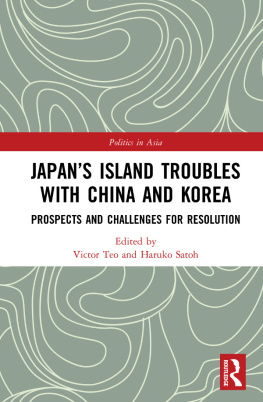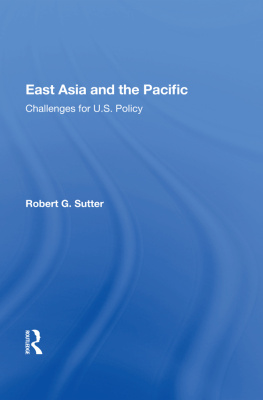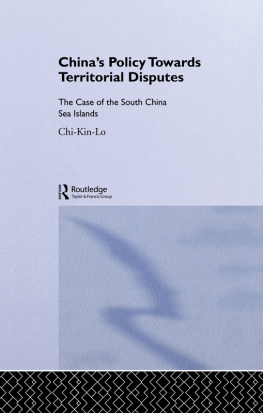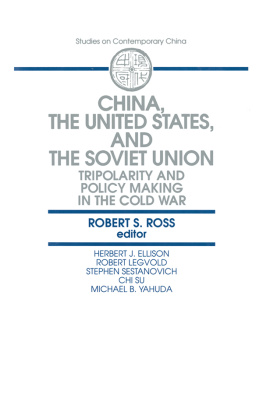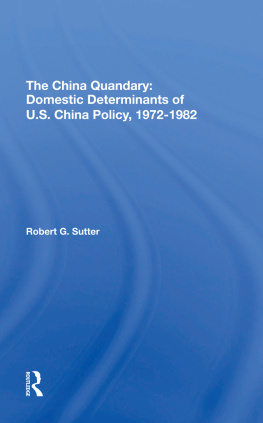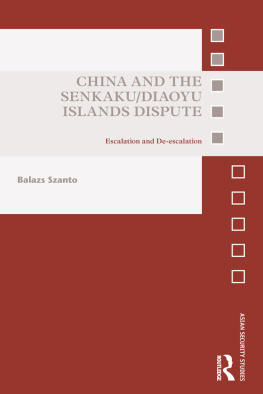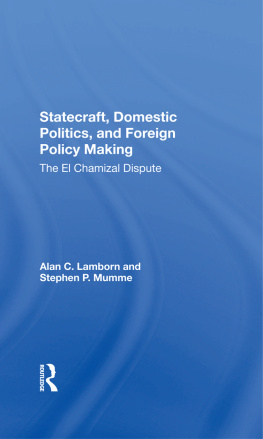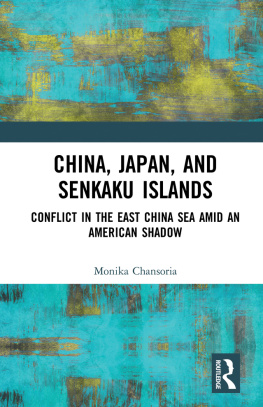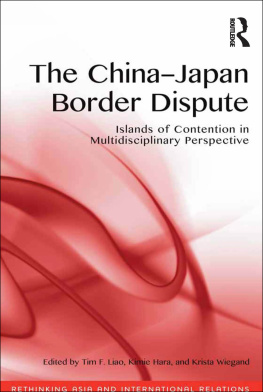Robert D. Eldridge - The Origins of U.S. Policy in the East China Sea Islands Dispute
Here you can read online Robert D. Eldridge - The Origins of U.S. Policy in the East China Sea Islands Dispute full text of the book (entire story) in english for free. Download pdf and epub, get meaning, cover and reviews about this ebook. year: 2014, publisher: Routledge, genre: Politics. Description of the work, (preface) as well as reviews are available. Best literature library LitArk.com created for fans of good reading and offers a wide selection of genres:
Romance novel
Science fiction
Adventure
Detective
Science
History
Home and family
Prose
Art
Politics
Computer
Non-fiction
Religion
Business
Children
Humor
Choose a favorite category and find really read worthwhile books. Enjoy immersion in the world of imagination, feel the emotions of the characters or learn something new for yourself, make an fascinating discovery.

- Book:The Origins of U.S. Policy in the East China Sea Islands Dispute
- Author:
- Publisher:Routledge
- Genre:
- Year:2014
- Rating:3 / 5
- Favourites:Add to favourites
- Your mark:
- 60
- 1
- 2
- 3
- 4
- 5
The Origins of U.S. Policy in the East China Sea Islands Dispute: summary, description and annotation
We offer to read an annotation, description, summary or preface (depends on what the author of the book "The Origins of U.S. Policy in the East China Sea Islands Dispute" wrote himself). If you haven't found the necessary information about the book — write in the comments, we will try to find it.
The Origins of U.S. Policy in the East China Sea Islands Dispute — read online for free the complete book (whole text) full work
Below is the text of the book, divided by pages. System saving the place of the last page read, allows you to conveniently read the book "The Origins of U.S. Policy in the East China Sea Islands Dispute" online for free, without having to search again every time where you left off. Put a bookmark, and you can go to the page where you finished reading at any time.
Font size:
Interval:
Bookmark:
Taiwans Defense against the Air Threat from Mainland China
Edited by Martin Edmonds and Michael M. Tsai
Leszek Buszynski
Edited by Martin Edmonds and Michael M. Tsai
Edited by Kwa Chong Guan and John K. Skogan
Russell Ong
Edited by Herbert S. Yee
Ashok Kapur
The Search for Security
Ian Storey
Russell Ong
Okinawas Reversion and the Senkaku Islands
Robert D. Eldridge

by Routledge
2 Park Square, Milton Park, Abingdon, Oxon OX14 4RN
711 Third Avenue, New York, NY 10017
A catalogue record for this book is available from the British Library
Eldridge, Robert D.
The origins of U.S. policy in the East China Sea islands dispute : Okinawas reversion and the Senkaku Islands / Robert D. Eldridge
pages cm. -- (Routledge security in Asia series)
Summary: Ownership of the Senkaku Islands in the East China Sea is disputed between China and Japan, though historically the islands have been part of Okinawa, the southernmost islands of the Japanese archipelago. The dispute, which also involves Taiwan, has the potential to be a flashpoint between the two countries if relations become more strained, especially as the exploitation of gas reserves in the adjoining seabed is becoming an increasingly important issue. A key aspect of the dispute is the attitude of the United States, which, surprisingly, has so far refrained from committing itself to supporting the claims of one side or the other, despite its long-standing, strong alliance with Japan. This book charts the development of the Senkaku Islands dispute, and focuses in particular on the negotiations between the United States and Japan prior to the handing back to Japan in 1970 of Okinawa. The book shows how the detailed progress of these negotiations was critical in defining the United States neutral attitude to the dispute -- Provided by publisher.
Includes bibliographical references and index. 1. Senkaku Islands--International status. 2. Okinawa Island
(Japan)--International status. 3. United States--Foreign relations--Japan. 4. Japan--Foreign relations--United States. 5. United States--Foreign relations--China. 6. China--Foreign relations--United States. I. Title.
KZ3881.S46E43 2014
952'.29--dc23
2013024065
ISBN: 978-1-315-86292-7 (ebk)
by Taylor & Francis Books
Font size:
Interval:
Bookmark:
Similar books «The Origins of U.S. Policy in the East China Sea Islands Dispute»
Look at similar books to The Origins of U.S. Policy in the East China Sea Islands Dispute. We have selected literature similar in name and meaning in the hope of providing readers with more options to find new, interesting, not yet read works.
Discussion, reviews of the book The Origins of U.S. Policy in the East China Sea Islands Dispute and just readers' own opinions. Leave your comments, write what you think about the work, its meaning or the main characters. Specify what exactly you liked and what you didn't like, and why you think so.



